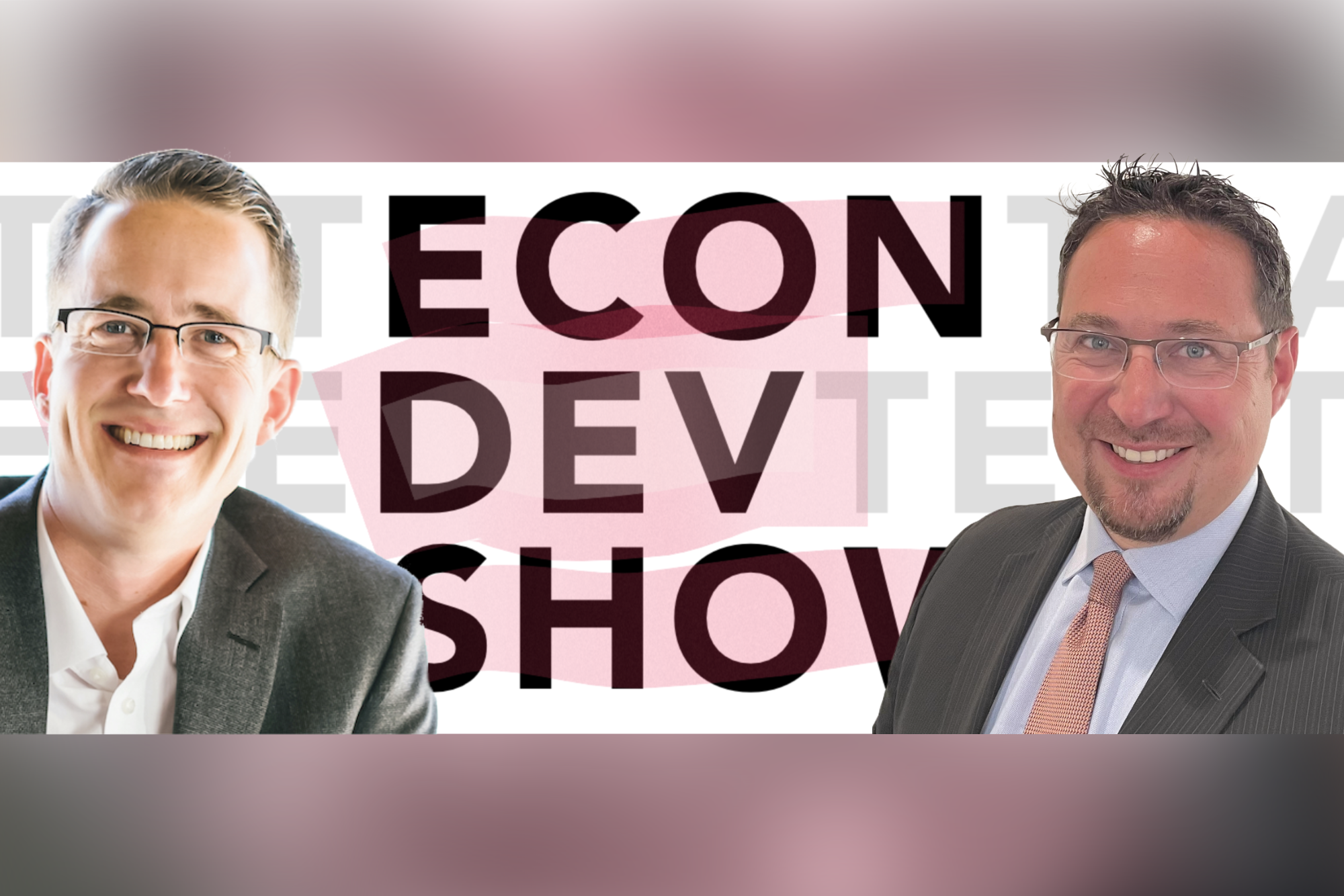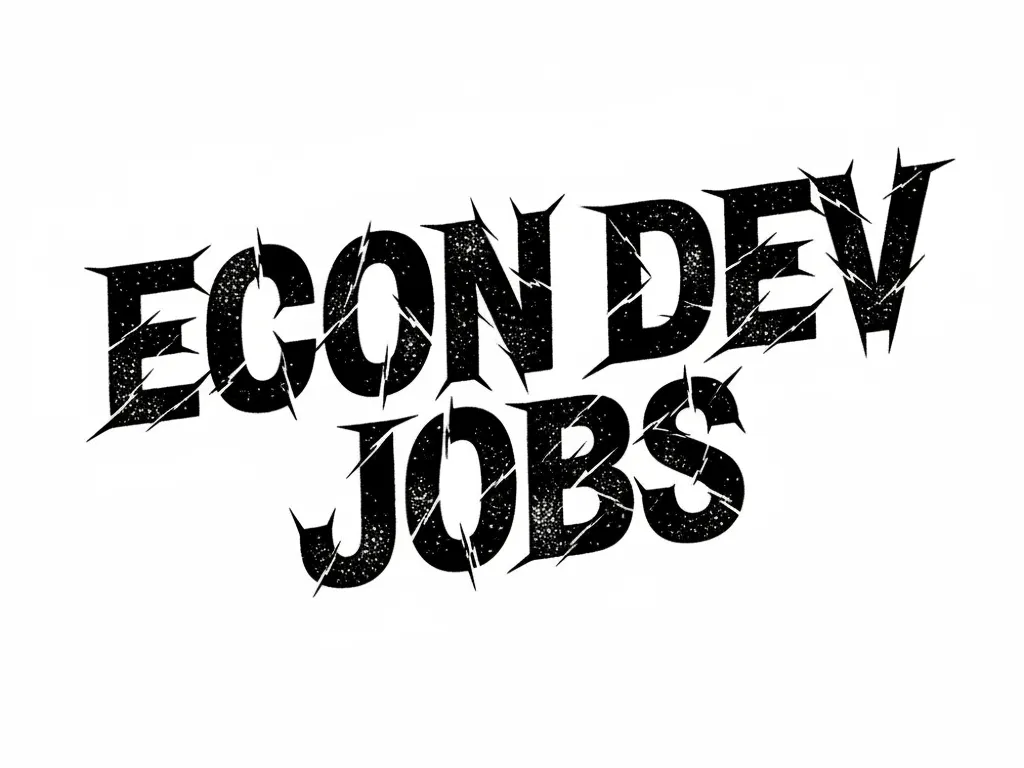Podcast Episode #131: Economic Analytics Made Easy: Eric Trevan's Innovative Approach
"No more sticky dots!"

Table of Contents
In episode 131 of the Econ Dev Show, Dane Carlson interviewed Eric Trevan, PhD, an investor, economist, and business and the President and CEO of aLocal Solutions an AI marketing and economic analytics platform.
Their conversation dives into Eric’s extensive experience and innovative approach to economic development.
Eric shares how his career evolved from being a planning director in Southeast North Carolina to his current role, emphasizing the importance of transparency and parity in economic data. He discusses the inception of his AI platform aimed at creating equitable economic opportunities by automating and providing affordable solutions for cities of all sizes.
Throughout the discussion, Eric highlights the significance of objective and comprehensive data in decision-making, especially for local governments and economic developers who often operate with limited resources compared to large developers. He illustrates how his platform, aLocal, aggregates and analyzes vast datasets to offer predictive analytics, enabling communities to make informed decisions about economic initiatives.
The conversation also covers the evolution of aLocal from its conceptualization in 2002 to its formal establishment in 2019. Eric recounts the journey, including his academic pursuits and various leadership roles that contributed to his understanding of economic dynamics. He stresses the role of AI in leveling the playing field for smaller communities and fostering data equity, sovereignty, and diplomacy.
Eric elaborates on the platform’s capabilities, such as forecasting market demand, economic impact, and financial health at granular levels, down to zip codes. He also touches on the importance of community involvement and stake
Sponsor
Sitehunt is Dane's AI-enhanced platform that helps economic developers build a comprehensive property database and respond to RFIs. Request a demo.
Actionable Insights for Economic Developers
- Leverage AI for Data Equity: Use AI-driven platforms to automate and provide affordable economic data solutions, ensuring all cities, regardless of size, have access to high-quality data for informed decision-making.
- Focus on Transparency and Objectivity: Ensure that all economic development decisions are based on transparent and objective data, reducing bias and building trust within the community and with stakeholders.
- Utilize Predictive Analytics: Employ predictive analytics to forecast market demand, economic impact, and financial health, helping to guide investment and development decisions with greater accuracy.
- Conduct Comprehensive Market Analyses: Regularly perform market analyses to identify industry demands, economic leakages, and financial health at a granular level, down to specific zip codes.
- Engage in Stakeholder Meetings: Actively participate in and facilitate stakeholder meetings to gather community input and ensure that development projects align with local needs and priorities.
- Support Data Sovereignty: Encourage communities to take ownership of their data, allowing for more accurate and relevant local economic models and better-informed decision-making processes.
- Implement Customizable Solutions: Offer customizable economic development solutions that can be tailored to the specific needs and priorities of different communities, whether they require detailed market studies or broad economic impact assessments.
- Foster Collaboration Across Jurisdictions: Promote intergovernmental and inter-jurisdictional collaboration to leverage shared resources and data, maximizing the impact of economic development initiatives.
- Invest in Workforce Development: Prioritize workforce development initiatives to ensure that local populations have the skills needed to support new and existing industries, fostering sustainable economic growth.
- Innovate and Adapt: Stay agile and open to new technologies and methodologies in economic development, continuously seeking out innovative solutions that can address long-standing challenges and drive positive community outcomes.
Episode Links
- Eric S. Trevan, Ph.D. | LinkedIn
- CHANGING THE WAY ALL ECONOMIC DECISIONS ARE MADE! - YouTube
- aLocal Solutions - Marketing Research Firm & Business Data Analytics
- Diffusion of Innovations by Everett Rogers
Other Sponsors
Edited Transcript
(This is an experimental AI edited transcript.)
Dane Carlson: Welcome back to the Econ Dev Show! Today, we're here with Eric Trevan, PhD. Eric is an investor, economist, and business leader. He is the President and CEO of aLocal Solutions, an AI market and economic analytics platform. Eric, welcome to the show.
Eric Trevan: Thanks so much for having me. I appreciate it.
Absolutely. I'm glad we are finally able to make this happen. I know that when we tried in the past, I was having horrible internet difficulties. And of course, you have the storm to negotiate today, but we'll see how far we get.
Yeah, we'll see how far we can get. So, aLocal Solutions--let's talk about this. What is an AI market and economics analytics platform?
Sure, that's a great question. When we came up with this idea, somewhere around 2002, AI was still a science fiction word. It was about generating its own data. If I can take a moment to explain, I was a planning director in Southeast North Carolina, and we had a big developer come in and say they were going to do amazing things for the economy. Many local businesses opposed it, fearing it would hurt them due to the tax savings and infrastructure improvements that favored the big development.
My business partner, Sages Suggs, and I talked about how difficult it was to have equal information on both sides and achieve parity and equity. That's how we came up with the idea to create something that would automate and provide a lower-cost solution so that whether you're a city of 5,000 or 500,000, an economic development organization could have parity with developers looking out for shareholder interests. AI was the solution to pull thousands of data sets into different economic clusters, providing predictive analytics for more balanced conversations and ultimately improving the economy and society. We also have a social mission to change the way all economic decisions are made.
That's really interesting and highlights the disparity between economic developers and entities like site selectors or businesses making large investment decisions. They have vast resources, while economic developers often operate under budget constraints and traditional methods, putting them at a disadvantage. Recognizing this disparity back in 2002 is commendable.
Absolutely. We work with a lot of government entities, local, state, and economic development organizations, as well as Native Nations. Transparency and objective information are critical for decision-makers reviewing whether to support developments. We aim to build trust, remove bias, keep costs down, and provide parity for everyone involved.
What kinds of economic information are you dealing with?
A Local Solutions is more of an analytics clearinghouse than a data clearinghouse. We forecast by pulling in tens of thousands of data points from public sources like the Census and BEA, as well as private sources. Instead of just publishing data like restaurant earnings, we analyze it with generative information to provide insights into market demand, economic leakage, employment, and more. Our platform includes financial variables and geographical data, allowing us to forecast profit and loss statements, balance sheets, and key financial ratios. This makes our suite very dynamic, providing comprehensive and consumable information.
I read that you were at California State University San Marcos in the middle of your journey. How did you get from 2002 to 2019, and what changed in that period?
When we came up with the idea, we initially called it the Downtown Project. I needed to learn more about communities and economies, so I took on various roles, including hosting an SBDC with the SBA and serving as CEO of a Native Nation and a trade association. In 2018, we secured initial funding from a development company through Mr. Suggs' contacts. It took us a while to build the foundation, but we've always had the idea in the forefront. I left the university in 2022 to focus on this full-time, and it's been incredibly rewarding.
What broad lessons have you discovered that can be applied in small communities?
I've attended hundreds of stakeholder meetings, and the biggest challenge is understanding community needs. Decisions are often guided by brainstorming sessions with sticky dots to prioritize ideas. We transcend this by providing data-driven insights into whether a business idea is in demand and the potential impact on taxes and jobs. This helps guide decisions more effectively. Stakeholder meetings are crucial for gathering input and ensuring decisions align with community needs.
Your core values include data equity, data sovereignty, good data, and data diplomacy. Can you elaborate on these?
Data equity ensures everyone has access to the same data. Data sovereignty allows communities to take ownership of their data for accurate local economic models. Good data is accurate representation, leading to better decisions. Data diplomacy involves being diplomatic with economic opportunities and intergovernmental relationships, ensuring that data use benefits all parties involved.
Is your work all custom, or do you have a software platform for self-service data access?
aLocal Solutions offers three main services: our net economic impact software, other software solutions, and geospatial GIS solutions. We provide subscription-based access to our platform, with no limit on seats, making it affordable. Our backend solutions support consultants, cities, and tribes, enabling them to access comprehensive market analyses quickly.
What's the best way for listeners to find out more or contact you?
Visit our website at alocalsolutions.com. You can also email me at eric.trevan@alocalsolutions.com. We're open to setting up demos, discussing suggestions, and addressing complaints. We're on social media too--Facebook, LinkedIn, Twitter, and Instagram. We're a small team, so we try to maximize our resources and plan effectively. We believe in our pillars of data equity, data sovereignty, good data, and data diplomacy. We're committed to changing the way economic decisions are made, and we can't do that without engaging with folks and getting feedback.
Thank you so much, Eric. This has been great, and I wish you the best of success.
Thanks to you too. It's because of folks like you that we can show what we're doing and make a positive change in communities.
Econ Dev Show Newsletter
Join the newsletter to receive the latest updates in your inbox.


